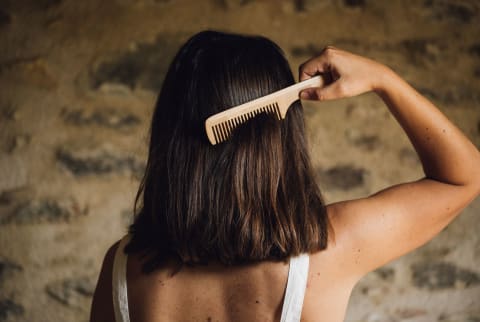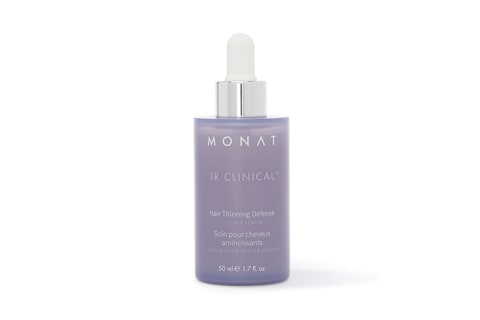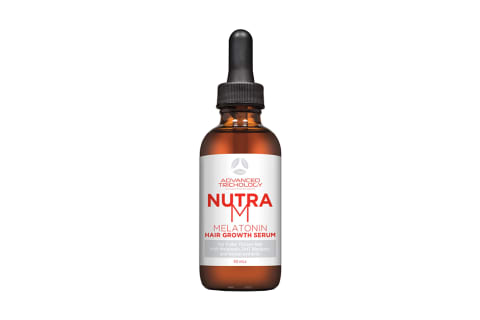Given these beauty-related benefits, it’s only natural to wonder whether topical melatonin can procure similar results. It turns out, melatonin-infused skin care products do carry some scientific weight—and because scalp care is skin care, melatonin may have some hair growth benefits, too. “A number of clinical studies have been done showing some improvement in androgenic alopecia2 in men and women after applying topical melatonin at night,” explains board-certified dermatologist Cynthia Bailey, M.D., founder of DrBaileySkinCare.com. (Androgenic alopecia, if you’re unfamiliar, is commonly referred to as male- or female-pattern baldness.) “It works particularly well in women, perhaps due to melatonin’s ability to modify the hair follicle response to estrogen3.” A recent 2022 in vitro study also found that melatonin can signal human dermal papilla cells4 (aka, cells found at the bottom of hair follicles that play a role in hair growth), which may be able to explain its positive effects. Finally, “Melatonin reduces free radical stress3 at the follicle level that can lead to reduced hair growth,” Bailey adds. After all, oxidative stress plays a major role in hair loss5, as the accumulation of free radicals over time can cause the follicle to close off, which limits growth and can eventually lead to shedding. That’s why experts tell you to tend to your scalp with antioxidants to fend off those free radicals—and melatonin does function as a powerful antioxidant. Science jargon aside, we can likely assume that melatonin can lead to hair growth benefits when applied topically—even if we don’t know exactly why. Not to mention, taking melatonin orally comes with a host of common side effects, like headaches, grogginess, or sleepiness upon waking. That’s why experts recommend opting for melatonin-free sleep aids, if you can (here’s a list of our favorites, if you’d like to make the swap). Although melatonin does function as an antioxidant, let’s not forget that melatonin is a hormone—and a vital hormone at that. “As with all hormones, such as estrogen, testosterone, and cortisone, studies looking at the resulting blood levels with any treatment are important,” notes Bailey. “Thus far, topical scalp application for the treatment of hair loss has not been shown to exceed normal blood levels of melatonin3.” So no, topical melatonin in skin care formulations shouldn’t make you feel sleepy or groggy—according to another 2016 study, a topical melatonin cream of 12.5% was not associated with any sort of cognitive dysfunction6. However, melatonin is pretty complex, and it’s a relatively new topical in the beauty space, so you should be mindful of the potential risks when using it. While most quality serums do undergo safety testing methods, you should still consult a doctor or skin care professional if you have any lingering concerns.





